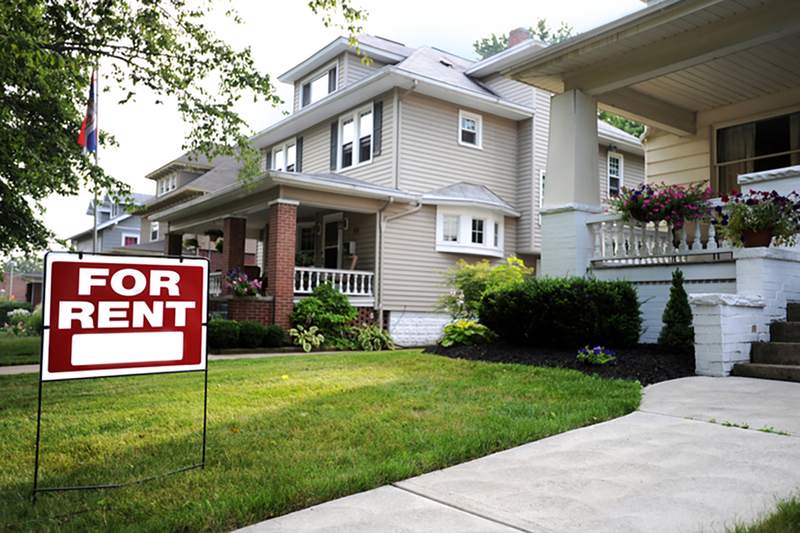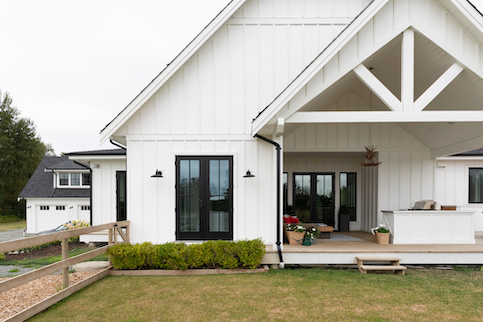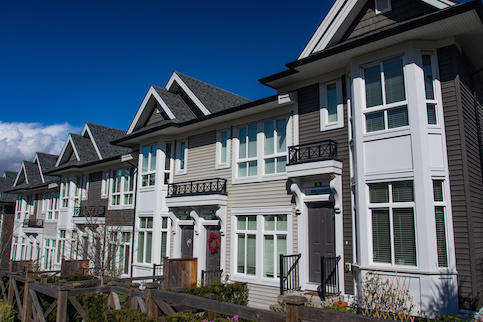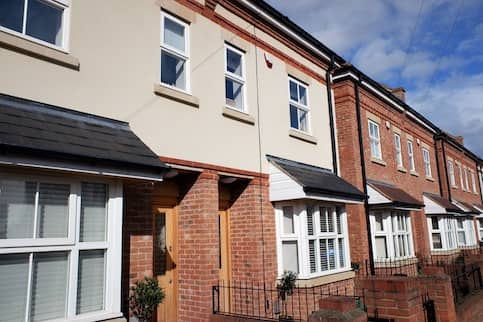An investment property can be a steppingstone to a brighter financial future. However, it’s important to know that you’ll need to make a larger down payment than you do when buying a home to live in. Learn more about how much you need for a down payment when buying an investment property and strategies for coming up with that money.
Key Takeaways:
- Expect to need a larger down payment than you’d need to buy a primary home when buying an investment property.
- How much you need for a down payment depends on the type of loan you’re using to buy an investment property.
- Borrowing your primary home’s equity, group investing, house hacking and seller financing are strategies you can use to afford a down payment on an investment property.
How to Know You’re Ready to Buy an Investment Property
Investing in property can be a risky proposition, so it’s a good idea to take stock of your finances before jumping in.
First, make sure your finances are stable and you can afford the upfront and ongoing costs. Common costs include:
- Down payment
- Closing costs
- Mortgage payments
- Maintenance
- Tenant costs like advertising, credit checks and vacancy costs
Next, think about how much time you have. Investment properties usually aren’t passive. You be on call for repairs and will need to find and screen tenants for vacant units. That all takes time.
You can hire a management company to help but they will charge you 5% to 10% of the monthly rent.
Finally, look at the numbers to make sure the investment property makes sense. Consider how much you’ll collect each month in rent, then subtract your costs. Hopefully, the home will appreciate but you also want to produce a positive cash flow. That can be hard in areas with high home values because rents might not generate enough income to cover your costs.
Compare Mortgage Offers From Verified Lenders:
Types of Investment Properties
There are three main categories of investment property: residential, commercial and raw land.
Residential
Residential real estate is what most people mean when they talk about investment properties. This category includes single-family homes and smaller multifamily units like duplexes or four-family homes.
These tend to be the easiest types of properties for beginners to invest in because buying one is similar to buying a home to live in. That can make understanding the risks and returns easier.
Commercial
Commercial real estate includes stores, offices, industrial buildings and larger residential buildings such as apartments.
Commercial real estate tends to be more expensive. However, commercial real estate offers some benefits for investors. For example, it’s not unusual for tenants to sign long-term leases, which can make provide reliable income and returns.
Triple-net leases are also common. These leases require that the renter pay rent and utility costs plus other expenses such as maintenance and property taxes. That can be a significant cost saving for investors.
Raw Land
Raw land is any undeveloped plot, so it’s most commonly going to be found in rural areas.
Raw land is often cheaper than developed land. It offers potentially significant returns on your investment if you can develop the property into something desirable. However, that also makes it risky. If you plan to build on raw land, you’ll have to pay development costs, which can be unpredictable. You also may face other roadblocks, such zoning issues or lack of utilities.
Mortgage Options for Buying an Investment Property
When you buy an investment property, you’ll need a loan designed for that purpose. There are a few types of loans you can consider.
Conventional mortgages
A conventional mortgage is one of the most common ways to buy an investment property, especially if you’re buying a residential property that doesn’t need much in the way of repairs or improvements.
A conventional loan will have stricter underwriting requirements when buying an investment property than a primary residence. You can get a conventional loan to buy a primary residence with a down payment as low as 3%. However, investment properties usually require at least 15% down payment.
Most conventional loan terms are the same, whether buying a primary home or an investment property, including the loan term, and your choice of a fixed or adjustable interest rate.
Hard Money Loans
Some real estate investors buy distressed properties, repair and renovate them, and sell them quickly for a profit. If that’s your goal, consider a hard money loan, sometimes called a fix-and-flip loan
These loans usually have more straightforward qualification requirements. Instead of looking at your credit, lenders evaluate the property you want to buy to ensure it provides adequate collateral. That benefits investors, but you’ll pay significantly higher interest rates.
Down payment requirements vary but expect lenders to require anywhere from 10% to 30% of the purchase price.
Hard money loans also have short repayment terms, usually just a few years. You’ll want to fix the home and sell it as quickly as possible or refinance to a more conventional loan if you plan to keep it long-term.
Down Payment Requirements for Buying an Investment Property
How much you need for a down payment on an investment property depends on the type of loan you use.
Investment Property Down Payment Requirements By Loan Type
| Loan Type | Down Payment Required |
|---|---|
| Conventional mortgage | 15% to 20% |
| Fix and flip or hard money loan | 10% to 30%, but varies widely |
What’s Your Goal?
Buy A Home
Discover mortgage options that fit your unique financial needs.

Refinance
Refinance your mortgage to have more money for what matters.
Tap Into Equity
Use your home’s equity and unlock cash to achieve your goals.
How To Finance The Down Payment On An Investment Property
The thought of coming up with a large down payment might be a damper on your investment property dreams. Many of us would struggle to quickly save enough to cover the down payment on investment property. The good news is that investors can pursue other ways of getting their hands on the cash.
Below are some strategies for investors looking to make a big down payment on an investment property purchase.
Home Equity Loans Or HELOCs
If you already own property, a home equity loan or line of credit may provide the funds you need for a down payment on an investment property. These loans let you borrow your home equity, which is the difference between what your home is worth and what you owe on it. Most lenders will let you borrow 80% of your home equity, which means you’ll need a fair bit of equity to be able to borrow enough to afford a down payment on an investment property.
Getting a home equity loan or HELOC is usually easier than getting a new mortgage. However, rates usually are higher than on conventional mortgages, and you’ll be increasing the amount you owe on your primary home.
Private Mortgages
Private mortgage lenders offer more flexible funding solutions for investment properties than other lenders. Many are even willing to offer down payment loans. One way to find private lenders in your area is to join a local real estate group. Your connections in this group can help you find property leads and financing possibilities.
Self-Directed IRA
It’s possible to invest real estate through a self-directed individual retirement account. The funds in this type of IRA can be invested in any type of real estate. The investment property would be owned by the IRA with the profits adding to the account’s balance.
Because retirement accounts often defer taxes, there are a lot of rules prohibiting certain types of transactions and use of the property by family, friends or colleagues. A self-directed IRA requires more paperwork than most real estate deals. The paperwork requirements will carry forward into the future, as the IRS requires all expenses for the property to be paid out of the IRA.
Group Investing
Buying an investment property as a group allows you to pool funds from family and friends for the down payment. If you have an extensive network of friends and family willing to invest with you, group investing can be a good option.
On the downside, you’ll also share the profit with your co-investors. And if you invest with friends and family and things go wrong, it could damage your relationship.
Bridge Loan
A bridge loan is a short-term solution for borrowing the funds you need for a down payment on an investment property. It’s a relatively common way for investors to buy property. Once you’ve closed on the investment property, you can refinance the bridge loan into a conventional loan.
Seller Financing
Seller financing, sometimes called owner financing, can suit buyers with limited cash for a down payment. In seller financing, the property owner is the lender and collects monthly payments from the buyer. A real estate investor can negotiate the loan agreement terms with the seller and may be able to get you a deal on the down payment.
House Hacking
House hacking is when you buy a property with multiple units, live in one of unit and rent out the rest. It may be possible to collect enough rent from your tenants to cover your entire mortgage payment.
The real beauty of house hacking is that you can obtain the property through a mortgage designed for a primary residence. An FHA loan will let you buy a property of up to four units with a down payment as low as 3.5% of the purchase price.
Ready To Become A Homeowner?
Get matched with a lender that can help you find the right mortgage.
Can I Avoid Paying 20% Down On My Investment Property?
Most investors need to put down at least 20% on their investment property purchases. If your credit score is 680 or higher, you may be able to put down a minimum of 15%. A 20% down payment can be avoided by considering alternative financing options, such as group investing.
What to Consider Before Buying an Investment Property
A down payment isn’t the only cost to consider when buying an investment property. Other factors you should think about include:
- Property and income taxes. Owning an investment property increases the complexity of your tax situation. You will have to pay property taxes on the investment, and income tax on any profits. Consult a professional to fully understand your tax liability.
- Mortgage rates. Mortgage interest rates affect how much you can afford to borrow. Monitor interest rates as you search for an investment property to buy. As rates change, you may need to adjust your search accordingly.
- Closing costs. You will have to pay closing costs, which generally range from 3% to 6% of the purchase price.
- Housing market trends. The housing market is always changing, which can affect your strategy as an investor. Watch closely local and national real estate trends that may give you an edge as you search for a property to buy.
- Potential return on investment. ROI compares your investment with the profit you earn. You want to make sure you’re going to make more money than you invest.
- Local restrictions. Local governments often restrict how investment property can be used. For example, many cities prohibit short-term rentals like an Airbnb. Before buying a property, it’s critical to know how you can and cannot use your property. While your real estate agent can help, it’s a good idea to verify this information and maybe consult an attorney to avoid misunderstandings.
- Hiring a property manager. A property manager can take the daily hassle out of managing your rental property. The downside is you’ll have to pay them, which reduces your profits.
- Insurance costs. Expecthomeowners insurance for an investment property to be more expensive than a policy for your primary residence. Before you buy a property, compare quotes from multiple insurance companies to know what to expect and to find the best deal available.
- Tracking income and expenses. Managing a rental property involves tracking your income and expenses. Without a clear understanding of these numbers, it’s challenging to allocate resources, set rental rates, prepare tax returns and generate profits.
Take The First Step To Buying A Home
Find a lender that will work with your unique financial situation.
Tips for Buying an Investment Property
If you’re thinking about buying an investment property, consider these tips.
- Make sure you’re ready to buy an investment property. You need to be financially stable to afford the high upfront costs and ongoing expenses of owning a property. Remember, there may be periods vacancy during which you’ll have no rental income.
- Consider location. Try buying properties in up-and-coming areas, as that will lead to rising property values and higher rents.
- Have a long-term outlook. Investment properties have high upfront costs and prices can be volatile. Plan for the long term if you’re thinking about buying property.
- Brush up on your home maintenance skills. Even with a well-maintained property, things eventually break. You can save money and improve your returns if you’re willing and able to make basic repairs yourself.
- Understand rental law in your area. If you’re a landlord, it’s essential to understand your legal rights and responsibilities as well as the rights of your tenants . Some states are more friendly to landlords, while others favor tenants. Mistakes could see you facing thousands in fines, so make sure to understand the law and hire a lawyer if you need it.
FAQ
Here are answers to common questions about making a down payment on an investment property.
The Bottom Line
Real estate investors usually need to put down at least 15% to obtain a property. However, some financing options, like seller financing and house hacking, offer a way to buy without coming up with that much cash. As you explore your options for obtaining an investment property, run the numbers carefully and talk to a financial advisor.
More From Quicken Loans:
- What’s An Investment Property And Are You Ready To Buy One?
- Using An IRA Withdrawal For A Home Purchase: A Complete Guide
- How To Invest In Income-Producing Real Estate
- Using An FHA Loan For Investment Property: A Complete Guide
- A Guide To Rental Property Financing
- Types Of Real Estate Investments: A Complete Guide
Sarah Sharkey contributed to the writing of this article.

T.J. Porter
T.J. Porter is a Boston-based writer who focuses on credit cards, credit and bank accounts. When he's not writing about all things personal finance, he enjoys cooking, esports, soccer, hockey, and games of the video and board varieties.












